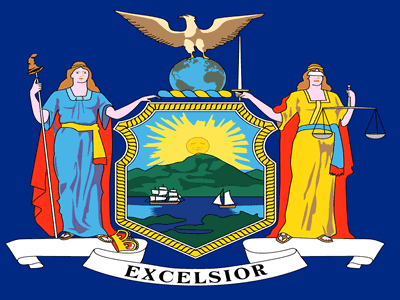It’s a very interesting time for online gambling as a whole in the state of New York. Fresh after daily fantasy sports giants FanDuel and DraftKings made an agreement with the state to stop offering real money contests there, a resolution in the state’s budget proposals for the next year has included language that would authorize the regulation of the online poker industry. What’s interesting about this is that it’s falling perfectly in line with the series of steps that would need to happen to provide a solid foundation of legislation for the industry in the area, but there are some problems.
The Current Position
As things stand now, if this language isn’t taken out of the budget proposal, then it would allow for the regulation of online poker (and no other form of online gambling) in the state. While this doesn’t mean we’d see poker running inside of the next year or anything like that, one thing it does mean is that New York would be much closer to having games running than a state like California where there is constant fighting between different interest groups that hold up the regulation of the game on the Internet.
Because this comes right after the daily fantasy juggernauts agreed to stop their operations in the state until legislation could potentially be passed to legalize the industry, a lot more is on the line than might players might think right away. In fact, the regulation of online gambling could build momentum that leads to the regulation of DFS, and that would arguably be a bigger win for the fantasy sports leagues than it would be for poker.
Problems With Current Suggestions
The current suggestions for legalizing online poker in New York include a number of problems structurally. To begin with, a total of up to ten licenses would be granted to operators at a cost of $10 million each, and the license itself would be good for a decade. These ten operators would be taxed at a 15 percent rate on gross revenue, but the first three years of those taxes would not be taken (worth up to $10 million) due to the fees for the licenses. This offsets a bit of the cost, but it’s enough of a problem for online poker because of the nature of the game and the ecology of the player pool.
The bottom line is that the player pool would be restricted to New York players only, and the more operators that show up to the table to pay for licenses, the more diluted the player pool will be, and the worse the selection of games will be. The end result is that poker players will actually benefit the most, at least at first, if only one or two licenses are handed out. The problem is that this would spell disaster for regulation since they would be taking in a fraction of the projected funds for regulating the industry, and that could be used to dissuade other states from opening up and regulating online poker.
Population Issues
What’s more is that New York has 8.4 million fewer people than New Jersey, the nearby state where online poker has largely flopped in popularity due to the segregated player pools. The ecology of a pool of poker players is a tricky thing, and it’s something that these state-by-state, segregated player pools aren’t able to take care of in terms of pure numbers. Deals between the gambling states to share players, much like the agreement between Nevada and Delaware, would have to become the norm to avoid this problem, and it doesn’t look like more deals like that are going to happen any time soon.

